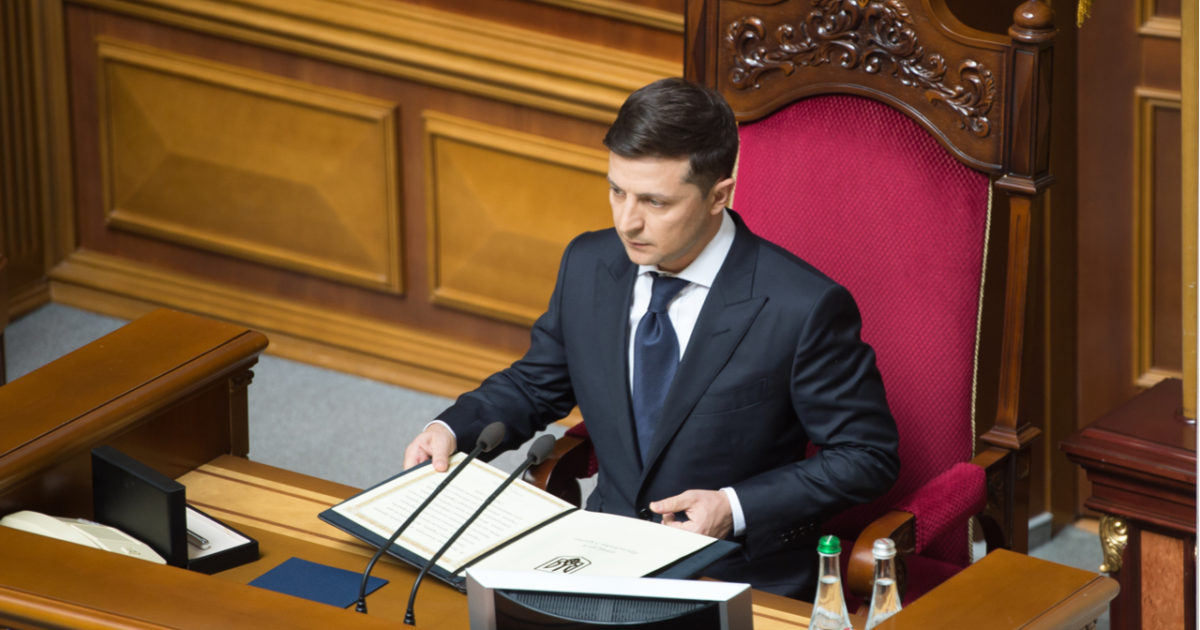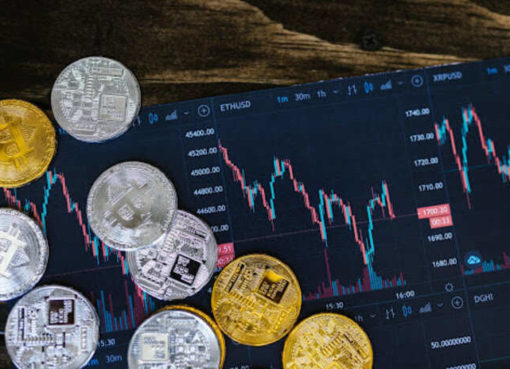President Volodymyr Zelenskyy has signed the law “On Virtual Assets” which aims to regulate the crypto market in Ukraine. The approval comes as his country is increasingly relying on cryptocurrency donations to fund its defense and deal with humanitarian problems amid an ongoing Russian invasion.
Law Regulating Cryptocurrencies Approved by Ukraine President Zelenskyy
Ukrainian President Volodymyr Zelenskyy has signed into law a bill establishing rules for cryptocurrency transactions. The law “On Virtual Assets” will allow crypto platforms to operate in the country which has been using digital assets to finance its defense efforts and help its civilian population in the face of Russia’s military assault.
“Ukraine has legalized the crypto sector,” the Ministry of Digital Transformation tweeted on Wednesday. “From now on, foreign and Ukrainian cryptocurrency exchanges will operate legally and banks will open accounts for crypto companies,” added the department, which has been involved in the raising of crypto funds.
The law divides virtual assets into three main categories. Cryptocurrencies like bitcoin are classified as ‘unsecured’ assets as opposed to ‘secured’ virtual assets such as profit-bearing security tokens. Financial instruments like tokenized stocks as well as stablecoins and central bank digital currencies are in the third group, ‘financial’ virtual assets.
The draft was initially adopted by the Verkhovna Rada in September but Zelenskyy returned it the following month, recommending changes concerning regulatory bodies. After taking into account his suggestions, the Ukrainian parliament passed the law in mid-February. Zelenskyy had to sign it within 10 days, but then the war started.
Before its latest revision was presented, the virtual assets law envisaged the establishment of a special crypto regulatory body but the Ukrainian head of state objected to the idea, warning this would cost the budget additional spending. Lawmakers agreed and also relieved the digital ministry of its oversight responsibilities.
The National Securities and Stock Market Commission (NSSMC) and the National Bank of Ukraine (NBU) will be the main crypto regulators under the amended rules. The NBU will supervise the circulation of digital assets secured with other currencies while the NSSMC will be the watchdog for the rest.
The commission will also issue permits to crypto service providers, maintain a register of these entities, and oversee their activities. It is tasked with detecting violations and imposing financial sanctions. The new legislation will guarantee cryptocurrency owners judicial protection of other rights.
The law “On Virtual Assets” of Ukraine, which is a leader in terms of crypto adoption in Eastern Europe, will enter into force after Ukrainian deputies update the country’s Tax Code. The changes are necessary to regulate the taxation of crypto-related incomes and profits.
Do you think Ukraine has a chance to become a global crypto hub after the conflict with Russia ends? Tell us in the comments section below.
Image Credits: Shutterstock, Pixabay, Wiki Commons
Disclaimer: This article is for informational purposes only. It is not a direct offer or solicitation of an offer to buy or sell, or a recommendation or endorsement of any products, services, or companies. Bitcoin.com does not provide investment, tax, legal, or accounting advice. Neither the company nor the author is responsible, directly or indirectly, for any damage or loss caused or alleged to be caused by or in connection with the use of or reliance on any content, goods or services mentioned in this article.




